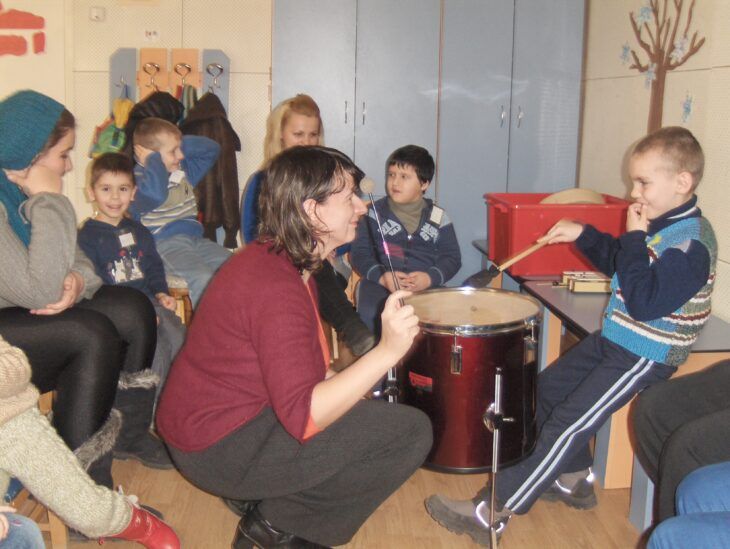Monika’s story
Romania
- Children
- Disability
- Young people

Monika Szabo first came into contact with the charity in 2002. At that time, the setting where she worked had only recently started accepting pupils with moderate or severe disabilities. Monika and her colleagues were unprepared for the challenges this would present, so when their school received one of our training projects it came at a crucial time.
Over the course of the project Monika continually embraced the challenge of learning something new, even surprising herself with the new skills and self-awareness she had gained from the training.
It was a big surprise for me when I listened to my own improvisation; the force and the intensity I used to beat the drum. I thought I was a fragile person but those drum beats exorcised from me a huge quantity of energy. I have discovered that musical improvisation is a good opportunity for self-knowledge, to reveal the hidden, blocked energies and resources
Once the project was complete, Monika continued to work with groups of children in the school, with her initial training and growing experience awakening her curiosity about what else could be done with music therapy. She began training in other forms of therapy, increasing her understanding of what happens in an interactive music making session.
Over time, Monika gained wider recognition and began to receive requests for her work from other settings in Romania. Over time, she became more confident in her approach – something Monika also attributes to the ongoing support she received from the charity.
The sustaining from Music as Therapy gave me confidence that I am doing a good and useful job
By 2010, in partnership with Advisory Panel member Cathy Rowland and our director Alexia Quin, Monika developed a local training model which she would lead. This demonstration of self-motivation and belief in her abilities ultimately led Monika to take on the role of Moderator for the Distance Learning model in Romania.
Monika has become one the leading pioneers of music therapy in the country. She has written a book on music therapy, presented her work at a number of conferences and lead workshops at the national Music Therapy Conferences in 2015 and 2016. Through her commitment and sustained practice, dozens of other caregivers have gained the skills, confidence and understanding to give thousands of children with disabilities the chance to access music as part of their care.
When they invite me to their institution to introduce the music therapy in it, to make it known by other colleagues, I feel I have the opportunity of doing something good for this world.
